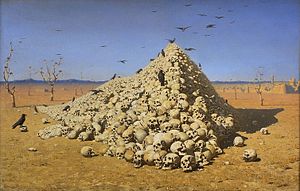What is Draconian Law?
The son of this Alcmaeonides was called Megacles. During the days when Megacles was foremost of the nobility occurred the first effort to turn Athens from an oligarchy to a tyranny. In the year 610 B.C. a young nobleman named Cylon called all the people to aid him in overthrowing the rule of the nobles. The revolt failed; Cylon escaped in secret, and his followers clung to the shrines of the gods for protection. They were deliberately torn thence and murdered by command of Megacles. Because of this insult to the gods, the entire family of Megacles, the Alcmaeonidae, were thereafter regarded as accursed.
Even before this outbreak, the nobles had agreed that somewhat more consideration must be shown to the common folk. The rulers decided that all the cruel laws they had passed whenever the impulse seized them should be arranged in a single plainly stated system; thus, at least, the nobles could no longer twist the laws as they willed; and a poor man might know what the law really was, and so avoid breaking it unconsciously. The man who was summoned thus to "codify" the laws was Draco. So severe were many of the old half-forgotten laws that when they were all thus clearly set forth, men were horrified at their severity. Death was made the penalty for every tiny crime, even the stealing of an apple from an orchard. Draco is said to have declared that the smallest crime deserved death, and that he knew of no severer penalty to attach to greater crimes. Of this grim code of laws men said that they were "written in blood," and the word "draconian" remains in use today as signifying a rule unflinchingly severe.
The laws of Draco did not quiet the tumults in Athens. The friends of Cylon continued to aid the common people, especially in their protests against the "accursed Alcmaeonidae." Supernatural portents were said to betoken the anger of the gods, and threatening ghosts appeared. Disasters overtook the Athenians in a war with the city of Megara. Finally, the Alcmaeonidae were banished in a body. Even the bones of their dead ancestors were exhumed and sent from the country with solemn formalities to avert the wrath of the gods. At the same time another lawmaker, Solon, was authorized to prepare a new set of laws relieving the misery of the poorer classes.
The son of this Alcmaeonides was called Megacles. During the days when Megacles was foremost of the nobility occurred the first effort to turn Athens from an oligarchy to a tyranny. In the year 610 B.C. a young nobleman named Cylon called all the people to aid him in overthrowing the rule of the nobles. The revolt failed; Cylon escaped in secret, and his followers clung to the shrines of the gods for protection. They were deliberately torn thence and murdered by command of Megacles. Because of this insult to the gods, the entire family of Megacles, the Alcmaeonidae, were thereafter regarded as accursed.
Even before this outbreak, the nobles had agreed that somewhat more consideration must be shown to the common folk. The rulers decided that all the cruel laws they had passed whenever the impulse seized them should be arranged in a single plainly stated system; thus, at least, the nobles could no longer twist the laws as they willed; and a poor man might know what the law really was, and so avoid breaking it unconsciously. The man who was summoned thus to "codify" the laws was Draco. So severe were many of the old half-forgotten laws that when they were all thus clearly set forth, men were horrified at their severity. Death was made the penalty for every tiny crime, even the stealing of an apple from an orchard. Draco is said to have declared that the smallest crime deserved death, and that he knew of no severer penalty to attach to greater crimes. Of this grim code of laws men said that they were "written in blood," and the word "draconian" remains in use today as signifying a rule unflinchingly severe.
The laws of Draco did not quiet the tumults in Athens. The friends of Cylon continued to aid the common people, especially in their protests against the "accursed Alcmaeonidae." Supernatural portents were said to betoken the anger of the gods, and threatening ghosts appeared. Disasters overtook the Athenians in a war with the city of Megara. Finally, the Alcmaeonidae were banished in a body. Even the bones of their dead ancestors were exhumed and sent from the country with solemn formalities to avert the wrath of the gods. At the same time another lawmaker, Solon, was authorized to prepare a new set of laws relieving the misery of the poorer classes.



No comments:
Post a Comment